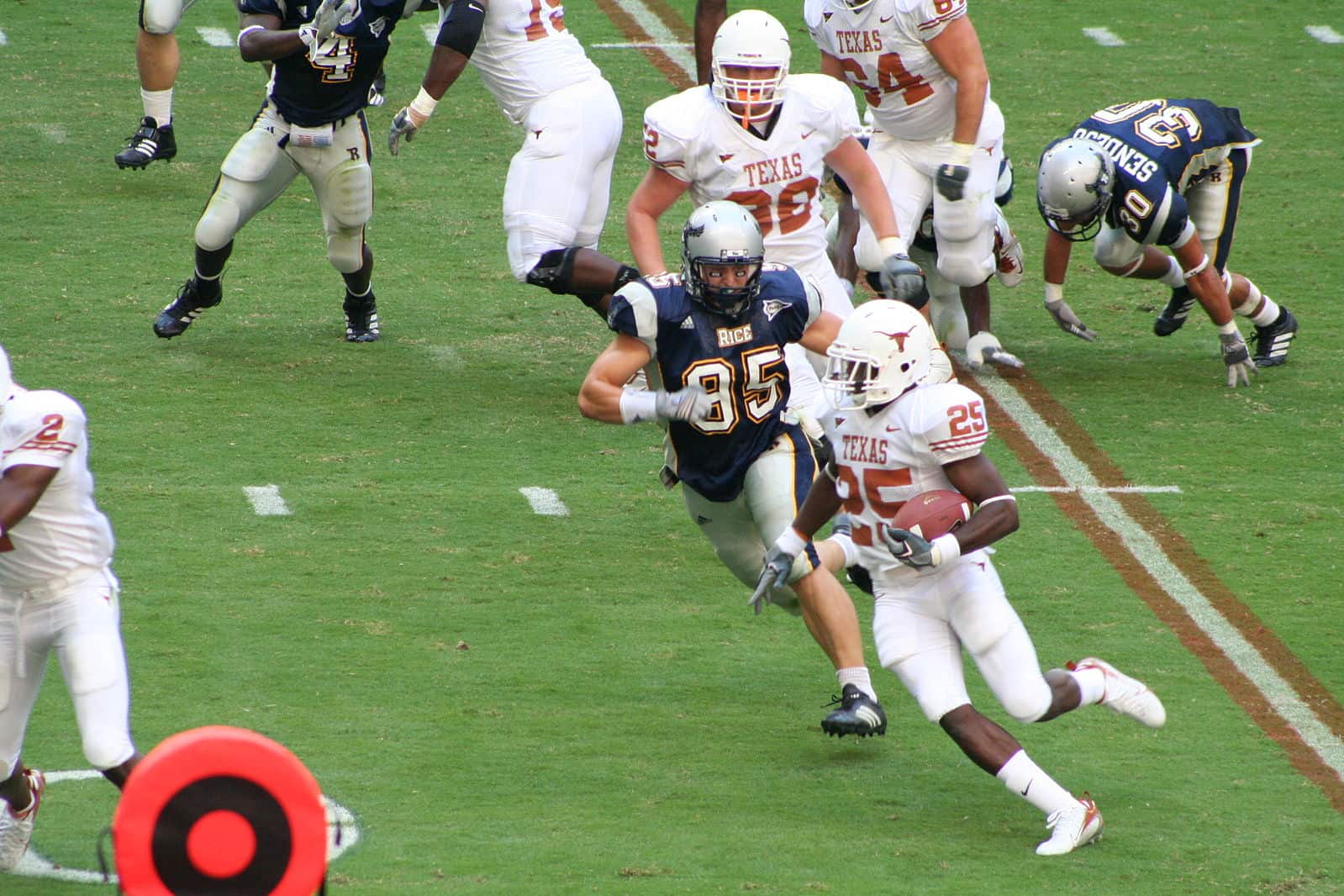
Tascha Shahriari-Parsa is a government lawyer enforcing workers’ rights laws. He clerked on the Supreme Court of California after graduating from Harvard Law School in 2024. His writing on this blog reflects his personal views only.
Yesterday, the NLRB’s general counsel office concluded that student athletes are employees under the National Labor Relations Act, providing a path to unionization for these employees. The GC concluded that the National Collegiate Athletic Association (NCAA), the Pac-12 Conference, and the University of Southern California are violating the law by not recognizing their student athletes as employees.
Ramogi Huma, executive director of the National College Players Association which brought the cases before the NLRB, emphasized the importance of recognizing college athletes as employees under the NLRA. “Gaining employee status and the right to organize is an important part in ending NCAA sports’ business practices that illegally exploit college athletes’ labor,” he said. “We are working to make sure college athletes are treated fairly in both the education and business aspects of college sports.” Meanwhile, the NCAA pushed back, continuing to argue that college athletes are not employees of the association.
If the NLRB recognizes college athletes as employees, it would fall naturally in line with existing Board law that recognizes the statute’s coverage over student workers. Specifically, in Columbia University, the NLRB determined in 2016 that graduate student workers were employees under the NLRA, giving them the right to organize. Like student athletes, the employee-status of graduate student workers was controversial, but the Board determined that the prior Board had “deprived an entire category of workers of the protections of the Act, without a convincing justification in either the statutory language or the policies of the Act.” That prior Board had held that the NLRA is primarily designed to cover economic relationships, and that graduate assistants “are primarily students and have a primarily educational, not economic, relationship with the university.” But the 2016 Board responded that the existence of non-economic aspects of a relationship don’t foreclose NLRA coverage: that is, just because the economic employment relationship co-exists with an educational or other non-economic relationship doesn’t mean that the NLRA doesn’t apply. And the Board rejected the idea that granting collective bargaining rights to graduate student workers would unduly harm mentoring relations between faculty and graduate students or infringe on the first amendment academic-freedom rights of universities.
The year prior to Columbia University, however, in Northwestern University, the NLRB declined to exercise jurisdiction over Northwestern football players who were members of the NCAA. The Board did not say they weren’t employees, but rather held that even if they were statutory employees, it would not effectuate the policies of the Act to assert jurisdiction over them. The Board noted that because of the way the NCAA athletic system works, many of the rules applied to one team would have ramifications for other teams; thus, given that Northwestern was the only private school in the Big Ten Conference, it could cause a lot of instability to exercise jurisdiction only over Northwestern but not the other nine schools (since the NLRB doesn’t have jurisdiction over public employees). The Board did go out of its way, however, to note the possibility that it might exercise jurisdiction “in another case involving grant-in-aid scholarship players (or other types of scholarship athletes)” and noted that its decision did “not address what the Board’s approach might be to a petition for all FBS scholarship football players (or at least those at private colleges and universities).”
General Counsel Abruzzo released a memo last year that proposed a solution to the problems identified by the Northwestern University Board when it declined to exercise jurisdiction over the Northwestern football players: using a joint employer theory of liability. That is to say, each individual school would not be the only employer that the athlete-employees could bargain with; the NCAA itself would also be a joint-employer. This solves, or at least substantially mitigates, the problem of a mismatch between rules set by one individual school and rules set by the NCAA that bind all schools.
If the Board holds that student athletes are indeed employees under the NLRA, the holding would end the Board’s tacit exclusion of college athletes from the statute’s coverage. It would also align with a trend of recognizing greater rights of college athletes, including the Supreme Court’s holding in 2021 that NCAA rules against compensation violate antitrust law, and the NCAA’s decision shortly after to permit students to begin profiting from image and likeness endorsement deals. Given that the latter primarily benefits top players, the right to form a union would ensure that all college athletes—regardless of their public acclaim—have a right to demand fair compensation through collective bargaining.






Daily News & Commentary
Start your day with our roundup of the latest labor developments. See all
March 3
In today’s news and commentary, Texas dismantles their contracting program for minorities, NextEra settles an ERISA lawsuit, and Chipotle beats an age discrimination suit. Texas Acting Comptroller Kelly Hancock is being sued in state court for allegedly unlawfully dismantling the Historically Underutilized Business (HUB) program, a 1990s initiative signed by former Governor George W. Bush […]
March 2
Block lays off over 4,000 workers; H-1B fee data is revealed.
March 1
The NLRB officially rescinds the Biden-era standard for determining joint-employer status; the DOL proposes a rule that would rescind the Biden-era standard for determining independent contractor status; and Walmart pays $100 million for deceiving delivery drivers regarding wages and tips.
February 27
The Ninth Circuit allows Trump to dismantle certain government unions based on national security concerns; and the DOL set to focus enforcement on firms with “outsized market power.”
February 26
Workplace AI regulations proposed in Michigan; en banc D.C. Circuit hears oral argument in CFPB case; white police officers sue Philadelphia over DEI policy.
February 25
OSHA workplace inspections significantly drop in 2025; the Court denies a petition for certiorari to review a Minnesota law banning mandatory anti-union meetings at work; and the Court declines two petitions to determine whether Air Force service members should receive backpay as a result of religious challenges to the now-revoked COVID-19 vaccine mandate.